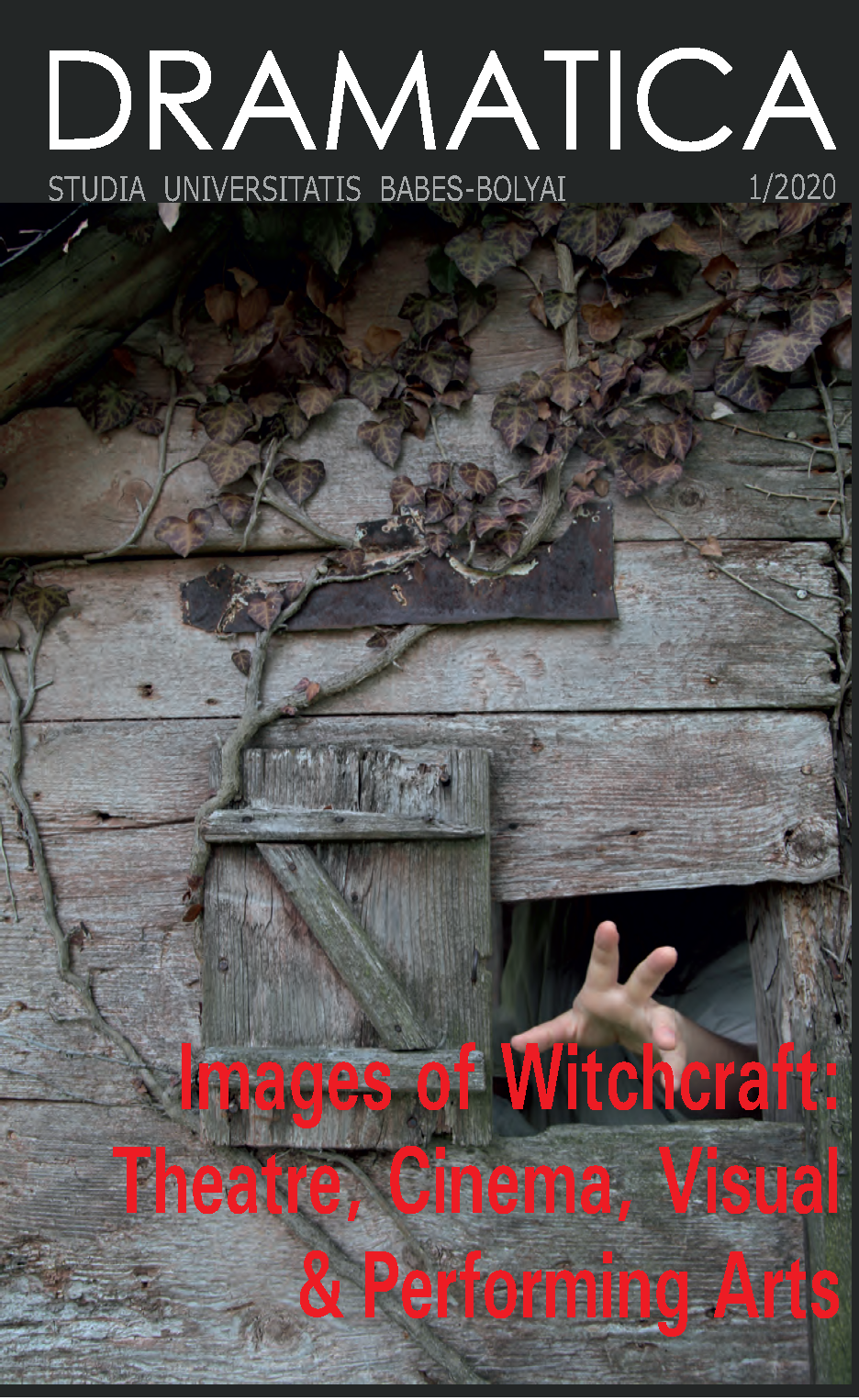The Weird Sisters. Historical-Religious Genealogies
DOI:
https://doi.org/10.24193/subbdrama.2020.1.02Keywords:
Shakespeare, Macbeth, Weird Sisters, witch, pagan, mythology, fairy, fate.Abstract
The present paper offers a historical-religious analysis of Shakespeare’s Weird Sisters and their multifaceted and equivocal nature. Their ancient origins are examined, starting from the Norns and the Anglo-Saxon force of fate, wyrd, then proceeding into Greek and Roman mythology and beliefs, coming to the conclusion that the Weird Sisters are part of a destiny complex in which they play the role of agents in delivering Macbeth’s fate. In the second part of the paper, the figure of the witch is analyzed both off stage, in popular belief and the Protestant faith, and on stage, as the Weird Sisters are moulded from fair fairies into foul witches, so as to reflect the interests of the early modern English audience. It is argued that the Sisters reflect the historical and religious changes occuring in English society as paganism is repressed and Christian elite ideas demonize all forms of magical practice and supernatural entities.
References
Ankarloo, Bengt, William Monter and Stuart Clark. Witchcraft and Magic in Europe: The Period of the Witch Trials. London: The Athlone Press, 2001.
Bradley, Andrew Cecil. Shakespearean Tragedy: Lectures on Hamlet, Othello, King Lear, Macbeth. London: Macmillan and Co, 1926.
Briggs, Robin. Witches and Neighbours: The Social and Cultural Context of European Witchcraft. Oxford: Blackwell Publishing, 2002.
Cavell, Megan. Weaving Words and Binding Bodies: The Poetics of Human Experience in Old English Literature. Toronto: University of Toronto Press, 2016.
Curry, Walter Clyde. “The Demonic Metaphysics of Macbeth.” Studies in Philology Volume 30, no. 3 (July 1933): 395-426.
Dillon, Janette. The Cambridge Introduction to Shakespeare’s Tragedies. Cambridge: Cambridge University Press, 2007.
Dodds, E. R. The Greeks and the Irrational. Berkeley: University of California Press, 1962.
Dutton, Richard and Jean E. Howard. A Companion to Shakespeare’s Works, Volume 1: The Tragedies. Oxford: Blackwell Publishing, 2005.
Grimal, Pierre. A Concise Dictionary of Classical Mythology. Oxford: Basil Blackwell, 1990.
Grimm, Jacob. Teutonic Mythology Vol. 1. London: Forgotten Books, 2014.
Hazlitt, William. Characters of Shakespeare’s Plays. Cambridge: Cambridge University Press, 2009.
Holinshed, Raphael. Holinshed’s Chronicles, accessed August 14, 2019, https://www.bl.uk/collection-items/holinsheds-chronicles-1577#.
James I. Daemonologie. Oxford: Bodleian Library, 2002.
Jochens, Jenny. Old Norse Images of Women. Philadelphia: University of Pennsylvania Press, 1996.
Knight, G. Wilson. The Wheel of Fire: Interpretations of Shakespearian Tragedy. London: Routledge Classics, 2001.
Lindow, John. Norse Mythology: A Guide to the Gods, Heroes, Rituals and Beliefs. Oxford: Oxford University Press, 2002.
Moschovakis, Nick. “Introduction: Dualistic ‘Macbeth’? Problematic ‘Macbeth’?”, in Macbeth: New Critical Essays, edited by Nick Maschovakis, 1-72. New York: Routledge, 2008.
Nemeti, Irina. “Parcae- Ursitoare. Studiu de mitologie contrastivă”, accessed June 1, 2019, https://www.academia.edu/4941133/Irina_NEMETI_Parcae_Ursitoare._Studiu_de_mitologie_contrastiv%C4%83.
Papahagi, Adrian. Wyrd: Ideea destinului în literatura engleză veche. Cluj-Napoca: Eikon, 2004.
Payne, F. Anne. “Three Aspects of Wyrd in Beowulf”, in Old English Studies in Honour of John C. Pope, edited by Robert B. Burlin, 15-35. Toronto: University of Toronto Press, 1974.
Purkiss, Diane. The Witch in History: Early Modern and Twentieth-Century Representations. London: Routledge, 1996.
Shakespeare, William. Macbeth. London: Wordsworth Edition Limited, 2005.
Shamas, Laura. We Three: The Mythology of Shakespeare’s Weird Sisters. New York: Peter Lang Publishing, 2007.
Snyder, Susan. Shakespeare: A Wayward Journey. Newark: University of Delaware Press, 2002.
Stanley, Eric Gerald. Imagining the Anglo-Saxon Past: The Search for Anglo-Saxon Paganism and Anglo-Saxon Trial by Jury. Cambridge: D. S. Brewer, 2000.
Thompson, Edward H. “Macbeth, King James and the Witches”, accessed October 10, 2019, http://faculty.umb.edu/gary_zabel/Courses/Phil%20281b/Philosophy%20of%20Magic/Arcana/Witchcraft%20and%20Grimoires/macbeth.htm.
Wain, John. Shakespeare: Macbeth; A Casebook. London: Aurora Publications, 1970.
Wilby, Emma. Cunning Folk and Familiar Spirits. Brighton: Sussex Academic Press, 2005.
Wilby, Emma. The Visions of Isovel Gowdie: Magic, Witchcraft and Dark Shamanism in Seventeenth-Century Scotland. Brighton: Sussex Academic Press, 2010.
Winterbourne, Anthony. When the Norns Have Spoken: Time and Fate in Germanic Paganism. Cranbury: Fairleigh Dickinson University Press, 2004.
Yates, Frances. The Occult Philosophy in the Elizabethan Age. London: Routledge Classics, 2001.
Downloads
Published
How to Cite
Issue
Section
License
Copyright (c) 2020 Studia Universitatis Babeș-Bolyai Dramatica

This work is licensed under a Creative Commons Attribution-NonCommercial-NoDerivatives 4.0 International License.


